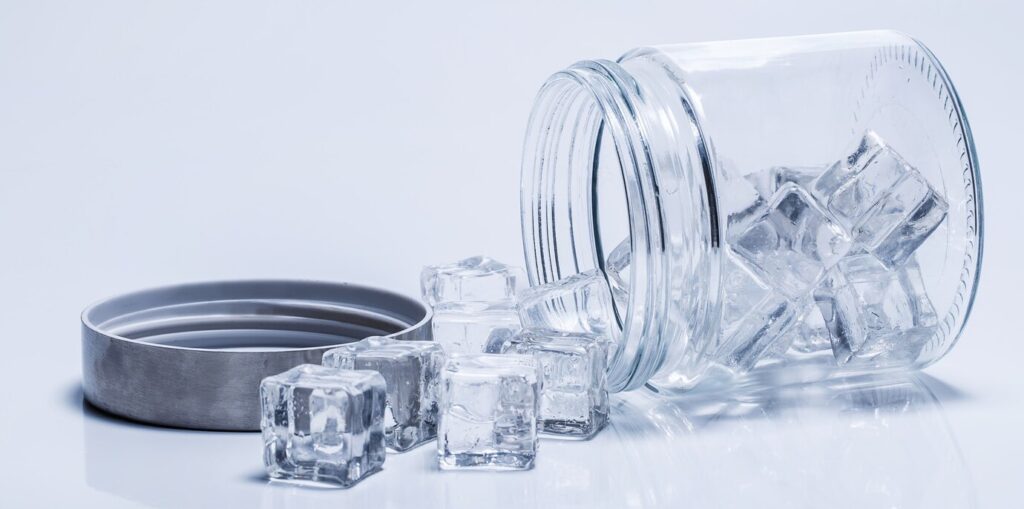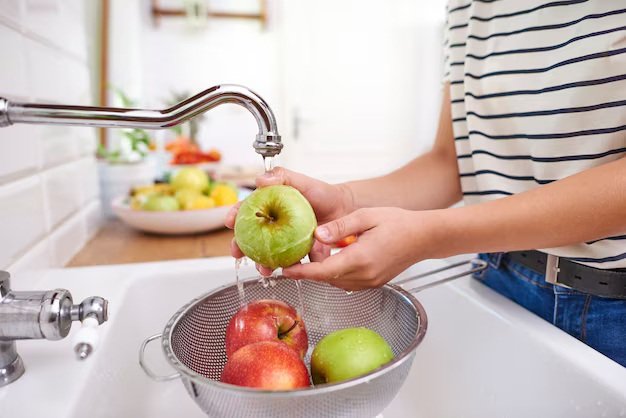Reusable Ice Cubes: Are They Worth It?
Have you ever thought about how much ice you go through in a week? Whether it’s for cooling drinks, icing an injury, or keeping food fresh, ice cubes are an everyday essential. But there’s a hidden cost—energy to freeze them and water waste from constantly making more. It may not seem like much, but on a global scale, it adds up.
That’s where reusable ice cubes come in. They promise a more sustainable way to keep drinks cold without wasting water or racking up energy bills. They’re reusable, convenient, and designed to eliminate dilution, so no more watered-down iced coffee. But are they really the best alternative? Do they stay cold long enough? Are they safe to use? And most importantly, are they truly eco-friendly?
In this guide, I’ll walk you through the necessary things you need to know about reusable ice cubes. We’ll explore their effectiveness, environmental impact, and whether they’re worth making the switch. With real-world insights, expert opinions, and practical advice, you’ll have everything you need to decide if they deserve a spot in your freezer.

In This Article
- What Are Reusable Ice Cubes?
- The Environmental Impact of Traditional vs. Reusable Ice Cubes
- Real-World Experience: Do They Work?
- Expert Insights: Are They Safe?
- Are They Worth It? Final Verdict
- Actionable Advice: Choosing the Right Option
- Conclusion
What Are Reusable Ice Cubes?
Reusable ice cubes are a modern alternative to regular ice, offering convenience while cutting down on water waste. These handy cubes come in different materials, each with its pros and cons. The idea is simple: freeze them, use them, and then pop them back in the freezer for next time. Unlike traditional ice, they won’t melt and dilute your drink.
Types of Reusable Ice Cubes:
- Stainless Steel: These are sleek, durable, and chill drinks quickly. Inside, they contain a cooling gel that keeps them colder for longer. They’re a popular choice for cocktails, iced coffee, or even just water.
- Plastic Filled with Gel: A budget-friendly option, these cubes are lightweight and come in fun colours. However, some may contain BPA, so it’s important to check for food-safe materials.
- Silica Gel or Soft Gel Cubes: These are flexible and efficient, making them great for soft drinks and juices. But they require gentle handling to avoid leaks.
- Stone or Whiskey Stones: Made from natural materials like soapstone, these are perfect for chilling alcohol without changing its flavour. They don’t get as cold as metal cubes but provide a steady chill.
The Environmental Impact of Traditional vs. Reusable Ice Cubes
Energy and Water Consumption
Let’s talk about something we rarely think about—the energy and water behind every ice cube we drop into our drinks. If you have a refrigerator with an ice maker, it’s using 12-20% more energy every year just to keep that ice coming. That’s according to the U.S. Department of Energy. It may not seem like a big deal, but over time, that extra energy adds up, increasing both your utility bill and your carbon footprint.
Reusable ice cubes, on the other hand, require a single freeze and then get used over and over again. No constant energy drain, no waste. It’s a small but meaningful shift toward sustainability.
Waste and Longevity
Here’s something most of us don’t think about: Every time ice melts, that water simply goes unused. While it doesn’t disappear, it often ends up down the drain instead of being repurposed. An average household in the U.S. uses a significant amount of water each year just to make ice, which eventually melts away without much thought.
Reusable ice cubes eliminate that waste because they don’t melt away. You buy them once, use them for years, and never have to worry about water waste again. However, not all reusable ice cubes are created equal. While they do save water and energy, their sustainability depends on what they’re made from. Stainless steel and stone cubes tend to have a lower environmental impact than plastic ones, which require more resources to produce.
Sustainability at a Glance
| Factor | Traditional Ice Cubes | Reusable Ice Cubes |
|---|---|---|
| Energy Use | High (Constant Freezing) | Low (One-Time Freezing) |
| Water Waste | High | None |
| Lifespan | Single-Use | Multiple Years |
| Environmental Footprint | Moderate | Varies by Material |
Learn More: What Is Food Sustainability and Why Is It Important?
Real-World Experience: Do They Work?
I wanted to see if reusable ice cubes could replace regular ice, so I tested them myself for a week.
First, I tried stainless steel cubes. They chill drinks fast, which is great when you want a quick refresh. But they’re a bit heavy, and after about 15 minutes, they stop being effective. If you’re nursing a drink, you might be disappointed.
Next, I used the gel-filled plastic cubes. They were super convenient—no mess, no dilution—but they didn’t get drinks as cold as I’d hoped. Plus, after a few uses, I started worrying about the possibility of leaks.
I also gave whiskey stones a shot. They’re perfect if you want to keep a drink at room temperature without warming up too fast, but if you’re expecting an ice-cold sip, they’re not the answer.
The verdict? Reusable ice cubes are great for short-term cooling. If you drink fast or just need a mild chill, they do the job. But if you love a frosty drink that stays cold for a long time, nothing beats traditional ice.
Would I use them again? Sure, for specific drinks or when I want to avoid watering something down. But if you’re thinking about replacing ice entirely, you might want to keep that ice tray handy.
Expert Insights: Are They Safe?
When it comes to reusable ice cubes, safety is a key concern. Dr. Luxin Wang, an Associate Professor in the Department of Food Science and Technology at the University of California, Davis, emphasises the importance of material choice. She notes that while reusable ice cubes can reduce water waste, it’s crucial to select those made from safe materials. Stainless steel cubes are generally safe and durable, but some plastic ones may pose risks if not properly manufactured. Choosing BPA-free, food-grade materials is essential to ensure safety.
The Missouri Poison Centre advises that many reusable ice cubes are made from food-safe, BPA-free plastic containing distilled or purified water. However, it’s important to inspect these cubes for any cracks, leaks, or mould growth before use. If any of these issues are found, it’s best to discard the affected cube.
Pros and Cons of Reusable Ice Cubes
| Pros | Cons |
|---|---|
| Reduce water waste | Some materials may leach chemicals if not properly manufactured |
| Eliminate dilution of drinks | Limited cooling capacity compared to traditional ice |
| Long-lasting and reusable | Higher upfront cost |
| Energy-efficient | May not chill as effectively as regular ice |
In general, reusable ice cubes offer several benefits, including reducing water waste and preventing drink dilution. However, it’s essential to choose products made from safe, high-quality materials and to be aware of their limitations in cooling performance. By making informed choices, you can enjoy the convenience of reusable ice cubes while minimising potential risks.
Are They Worth It? Final Verdict
Reusable ice cubes offer an eco-friendly alternative, particularly for those conscious about water waste and energy consumption. But are they the perfect solution for everyone? Not necessarily.
If you love sipping on a drink without worrying about it getting watered down, stainless steel or whiskey stones can be a great investment. They stay cold for a decent amount of time and don’t change the taste of your drink. Plus, they last for years, making them a solid choice for sustainability.
However, if you’re looking for the fastest way to cool a hot drink or need ice that stays cold for a long period, traditional ice cubes still have the upper hand. Nothing beats real ice for keeping your beverage frosty for extended periods.
The key takeaway? It depends on your priorities. If cutting down on waste and energy use matters to you, reusable ice cubes are a step in the right direction. But if you just want the best cooling power, a mix of both traditional and reusable options might be the way to go. Either way, small changes like this help in making everyday habits more sustainable.
Learn More: Sustainable Water Management Practices: A Comprehensive Guide
Actionable Advice: Choosing the Right Option
- Prioritise Sustainability: If your goal is to be eco-friendly, go for stainless steel or natural stone ice cubes. Stainless steel cubes are durable, long-lasting, and often filled with a cooling gel that helps keep drinks colder for longer. Natural stone cubes, like whiskey stones, are another excellent option—made from materials like granite or soapstone, they don’t contribute to plastic waste and can be reused indefinitely.
- Check for Safety: Not all reusable ice cubes are created equal. If you choose plastic ones, ensure they are BPA-free and food-grade certified to avoid harmful chemicals leaching into your drinks. Stainless steel and stone options are naturally safer, but always buy from reputable brands that guarantee non-toxic materials.
- Use a Hybrid Approach: Reusable ice cubes alone may not always be enough, especially if you’re hosting a gathering or need long-lasting cooling. Consider a hybrid approach—using both reusable cubes and traditional ice. This way, you reduce ice waste while still getting the cooling power you need.
- Maintain Proper Cleaning: Reusable ice cubes need to be cleaned thoroughly after each use to prevent bacteria buildup. Wash them with warm, soapy water and let them dry completely before storing. Some stainless steel cubes are even dishwasher-safe, making maintenance easier.
- Experiment and Find What Works Best: Not every type of reusable ice cube will suit every drink or occasion. Try different options to see what fits your lifestyle best. Whether it’s stainless steel, stone, or a combination, the right choice is the one that keeps your drinks cool while reducing waste.
Conclusion
Reusable ice cubes present a promising solution for reducing waste and saving energy. While they may not entirely replace traditional ice cubes, they serve as a valuable addition to a sustainable lifestyle. With mindful selection and use, they can be a worthwhile investment for eco-conscious consumers. Whether you switch entirely or adopt a hybrid approach, every small change contributes to a greener future.







